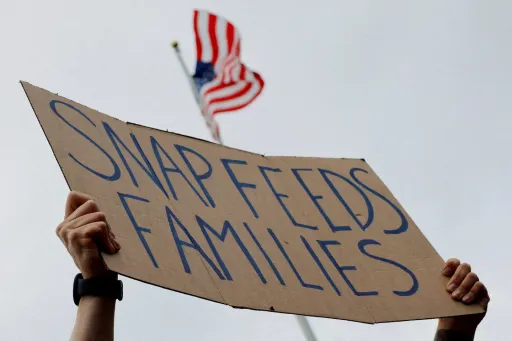By Coletta Wanjohi
A child playfully jumps over a drain brimming with sewage, accompanied by the alarmed voice of a woman shouting at him to be careful.
Her voice drowns in the din caused by a loudspeaker in the vicinity. It's a man urging the public to join in a community campaign.
"Twendeni, twendeni," he shouts. In Kiswahili, it means "let's go, let's go".
Mose Wanja, the community organiser of Mathare Social Justice, leads young people to the Nairobi River that flows along the informal settlement. The river, the primary water source for the teeming neighbourhood, needs cleaning.
Small-holding farmers in this congested village of over 200,000 people use the river water to irrigate their vegetable patches.
Wanja and his colleagues are carrying out what they call an "ecological justice campaign" to make the slum areas climate-friendly.
"We think Mathare has the potential to be a formal settlement. We do not have trees in the neighbourhood, so we thought of greening Mathare and beautifying it," Wanja tells TRT Afrika.
These young people of Mathare launched the project in 2014, clearing the area next to the river to plant trees and create a space for children to play.
"Trees are exceptional things; it is therapeutic to be somewhere where there are trees," says Wanja. "This used to be a dump yard. We reclaimed it for the community and named it Mathare Community Park. You can see that it is now a safe space for young people."
The park is still taking shape. The area is being cleared of garbage, and locally-made swings have been installed so kids can spend quality time there.
The young people of Mathare have taken matters into their own hands to contribute to the fight against climate change.
Movement spreads
Across the Uganda border, a man nicknamed "Tree General" by the children of his neighbourhood is preparing for an annual event that he instituted to raise environmental awareness.
Joseph Masembe, an activist, hosts primarily children at his Green Festival, where they are taught the importance of planting trees.
His initiative, "Little Hands Go Green", is popular among children, who spend the day playing and dancing before going back home with free saplings of fruit trees.
"I started this simple project in 2012 with the simple notion and belief that I can get every child in Uganda to plant and own at least one fruit tree," Masembe explains to TRT Afrika.
"The focus on fruit trees is because of their nutritional value. In ancient African culture, you rarely find someone cutting down a fruit tree, and we want to bring that back by encouraging the children to love trees."
Eleven years after he started the campaign, Masembe has taken it to primary schools nationwide.
"The idea of conservation hinges on children since they will determine the future long after many of us are gone," he says.
Nairobi Declaration
Wanja and Masembe are among a band of committed activists advocating that African leaders walk the talk on the commitments made at the first-ever African Climate Summit held in Kenya's Nairobi from September 4 to 6, 2023.
The summit culminated in a declaration that the world needs to do much more to get back on track to keep global warming within the 1.5°C limit agreed upon in Paris in 2015. Another critical commitment is that global emissions must be cut by 43% in this decade.
The summit noted that despite the continent having an estimated 40% of the world's renewable energy resources, only $60 billion or two per cent of US $3 trillion renewable energy investments in the last decade had come to Africa.
"We call upon world leaders to recognise that decarbonising the global economy is an opportunity to contribute to equality and shared prosperity," states the Nairobi Declaration.
Decarbonisation means switching from using fossil fuels such as coal, natural gas or oil to carbon-free and renewable energy sources.
According to the Nairobi Declaration, the planned global transition to a low-carbon economy would require an investment of at least US $4-6 trillion a year. Delivering such funding, in turn, entails transforming the financial system and its structures and processes, engaging governments, central banks, commercial banks, institutional investors and other economic actors.
"GDP is about credits; it is about assets. We have the carbon sinks that serve the world, clean our environment, and act as sequestration of carbon produced by others, but we get nothing for it; it is not anywhere in our balance sheet," President William Ruto of Kenya told the summit.
"To unlock the resources we need to drive this new investment and financial opportunities, especially for green energy, we believe it is time to discuss carbon tax."
Experts say Africa's forests absorb 600 million tons of CO2 annually, more than any forest ecosystem on Earth.
The opening of credit markets has started attracting much international interest in Africa, raising concern about the possibility of countries giving up land to high bidders. Yet, many African countries don't have the relevant laws yet.
Kenya, which made the clarion call, passed an amended Climate Change Act 2023 in September, allowing it to set up a national carbon registry and appoint an authority to run it.
"We haven't given out an inch of land to anybody. We are finalising their regulations," President Ruto told reporters at the recent COP 28 Climate Change Summit in Dubai.
"We are working on the regulations to bring integrity into the whole carbon space, carbon pricing, carbon markets, carbon trading. We want to make sure there is sufficient integrity."
The World Bank is reportedly supporting African countries to set up relevant regulations for the carbon market.
Carbon income
Back in Kenya, another group of young people cleaning up the Nairobi River has been following up on the Nairobi Declaration.
Humprey Omukuti leads the voluntary effort to reclaim another part of the same Nairobi River where Wanja and other young people strive to green the Mathare resettlement area.
The group, called Ghetto Farmers, believes that planting bamboo along the polluted river can save it.
"I closely followed our leaders' declaration in September and was very interested when they focused on carbon credits to curb climate change," Omukuti tells TRT Afrika.
He believes no complications are attached to this because it revolves around planting trees.
"Our only question is whether the money our African governments make from carbon credit trickle down to organised groups like ours that are already planting trees with private resources," says Omukuti.
"In all these African cities, so many young people do not even have employment; why not get those funds, pay them and let them increase our green cover? It will be a win-win because the youth will be employed, and the country will improve its green cover."
The general opinion among campaigners like Omukuti is that most leaders expect voluntary groups to do environmental work independently.
"They take funds to the big companies instead of supporting us to fight this scourge. This is our continent, and we would love to be part of the effort to fight climate change, but in an honourable way," says Omukuti.
More than anything else, he believes that the Nairobi Declaration must be seen to work in Africa.
➤Click here to follow our WhatsApp channel for more stories.





























